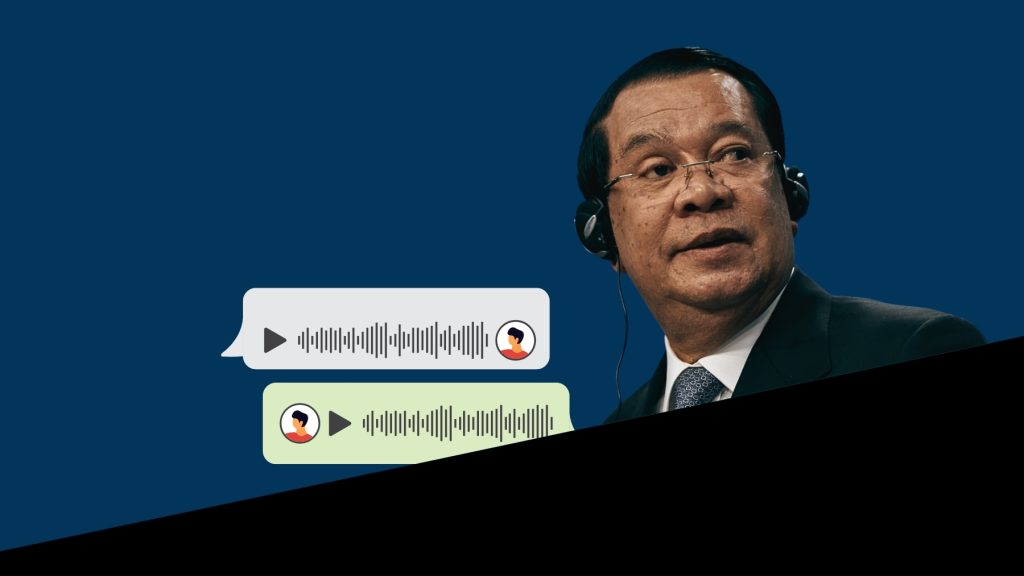
Cambodia has released its own chatting application, CoolApp, to challenge WhatsApp.
- Cambodia joins the ever-growing list of governments resorting to their homegrown products.
- Activists are worried about what this means for people’s privacy.
Cambodia has released its own chatting application that rivals WhatsApp, making people wonder if other countries should consider doing the same.
WhatsApp took the world by storm when it first came out in January 2009. Up until that point, we only had SMS and calling, which were expensive and quite limited. Then in walks WhatsApp, a free alternative through which you could also send multimedia. Multiple factors played into its success, including its ability to work across various platforms and its user-friendly interface.
However, with its growth in popularity, governments’ displeasure grew with it as well. The American chatting application offers end-to-end encryption for messages, allowing only the sender and recipient to see the content. Misinformation also spreads like wildfire through WhatsApp group chats and broadcasts. And most importantly, WhatsApp is a private company that governments cannot realistically control, especially when it comes to protest organizations and other activism-related activities.
As a result, many governments decided to develop their own secure text messaging applications, much to the people’s dismay. The list includes China’s WeChat, Vietnam’s Zalo, South Korea’s Kakao Talk, and Russia’s Telegram.
A New Addition
Cambodia has now joined the others’ ranks with its own chatting application, CoolApp. According to the former Cambodian prime minister, who is known for having ruled Cambodia with an iron fist for over three decades, Hun Sen, the new messaging application will ensure local communications if foreign applications go down. In a Facebook post, he wrote, “Civil government officials and armed forces should create CoolApp to ensure owners on keeping confidentiality and disconnecting from foreign systems.”
Apprehension Spreads Among People
Not everyone was happy with this new chatting application. Admittedly, internet freedom in Cambodia has been on the decline under Hun Sen’s rule. The people have been regularly dealing with censorship, media blackouts, and online harassment.
Activists are displeased with how things are going, as many who spoke out against the government have been arrested and persecuted. This was also accompanied by the closure of independent media outlets and websites.
Talking with CNN, opposition leader living in exile overseas, Mu Sochua, cautioned Cambodians against falling for the former prime minister’s CoolApp promotion. She called the chatting application a “Chinese-style mechanism for the control of public discourse and mass surveillance.”
Surveillance, Glad You Could Join Us
Country-specific messaging applications are becoming increasingly popular, which makes you wonder if it is a good idea for every country to have its own version of WhatsApp. A homegrown app meets the specific needs of a particular country’s users. It could also promote a sense of national identity and cultural exchange within the country.
That’s all great and dandy, but accepting these applications would enable the government to become a surveillance state. Not that governments aren’t already trying to monitor your every move. In fact, a 2019 report showed that 89% are a part of some type of surveillance program. This monitoring often occurs through chatting applications, email, and other online activities. Imagine if you were only using the government-approved app. They’d be allowed to know everything about you from how you really feel about your aunt’s cooking to when your doctor’s appointments are.
Final Thoughts
Each having their own chatting applications that cater to their culture is a wonderful idea. Unfortunately, it opens the door for governments to set their own rules regarding whether they have access to your data. Be careful not to invite surveillance into your life.
Inside Telecom provides you with an extensive list of content covering all aspects of the tech industry. Keep an eye on our Cybersecurity sections to stay informed and up-to-date with our daily articles.